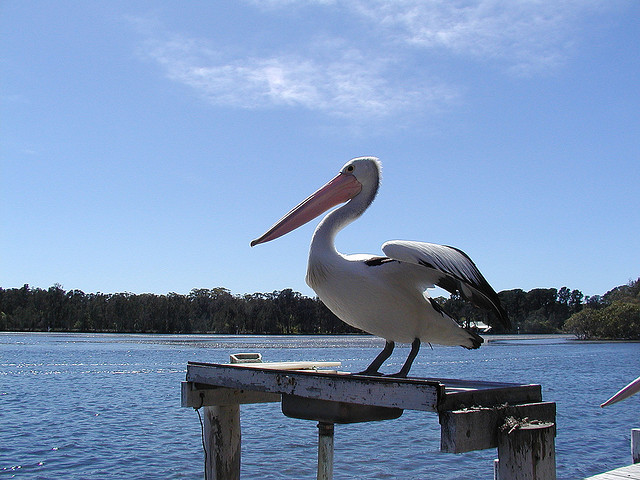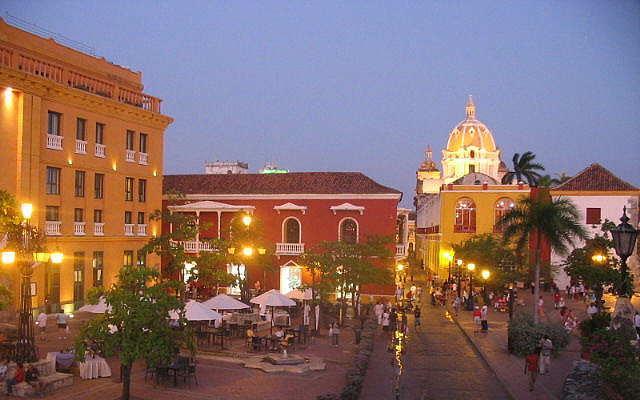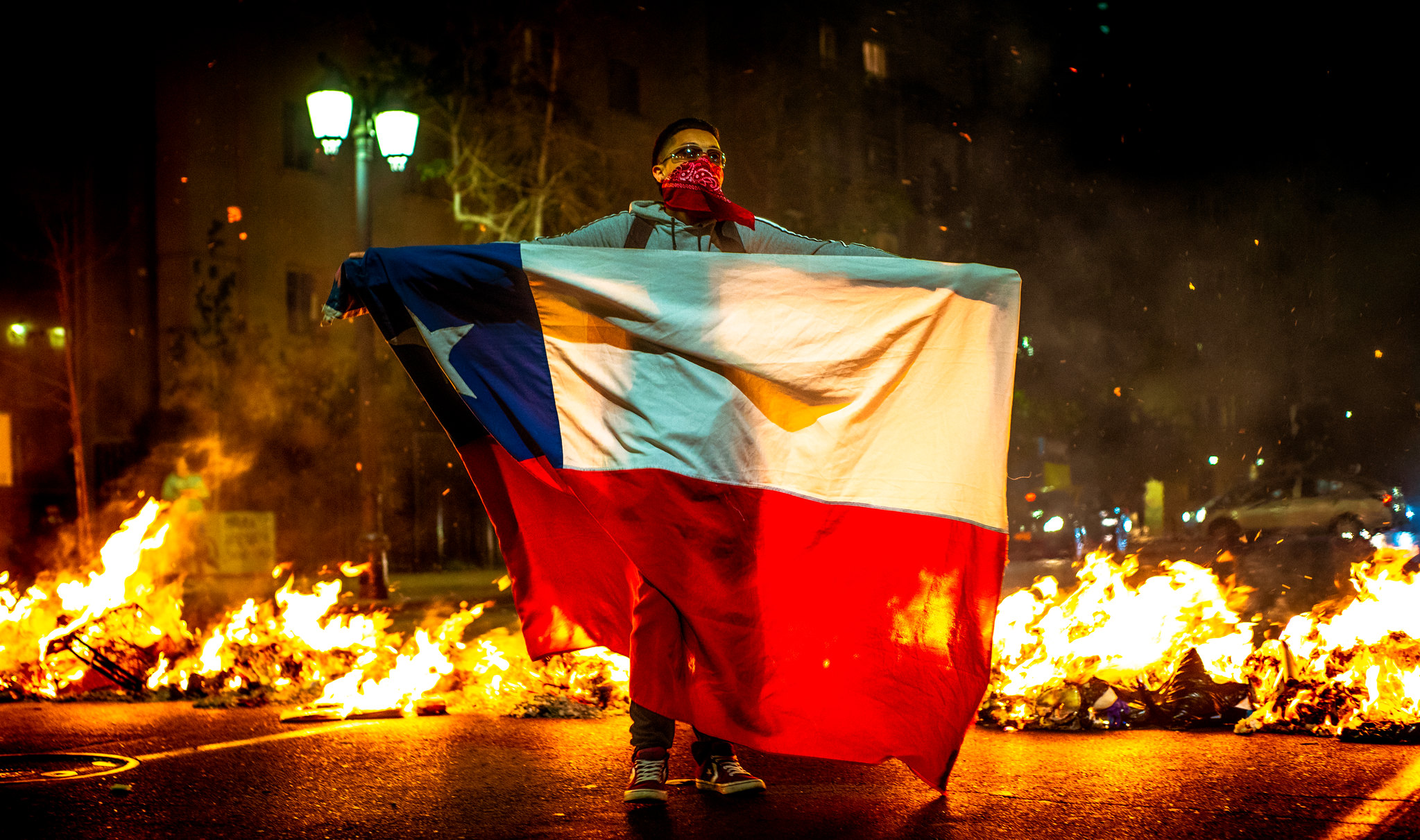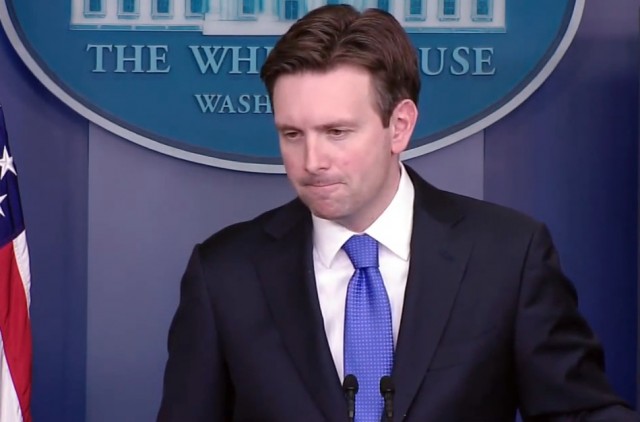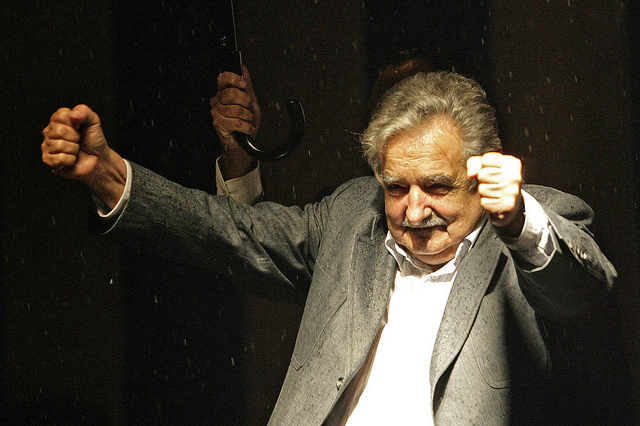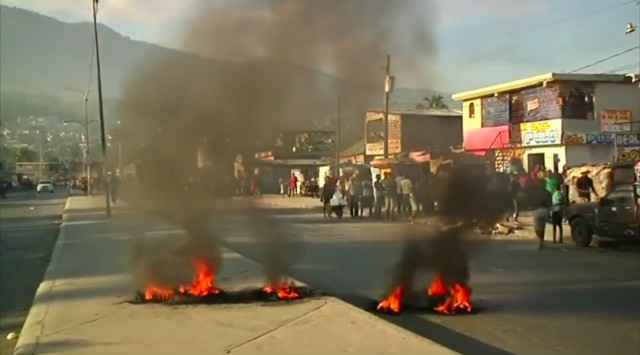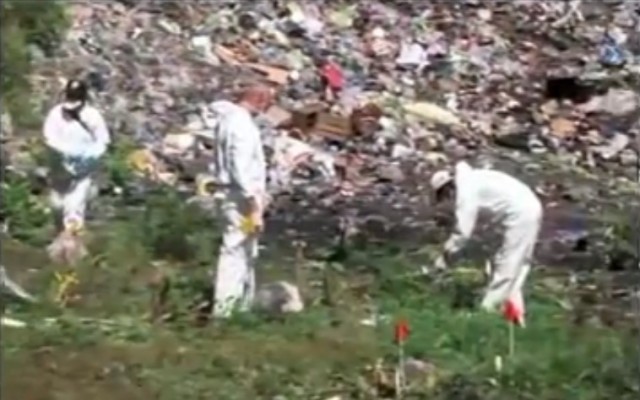
Latin America: Week in Review, Mexico, North America
Forensic Report Casts Doubt on Government Account in Mexico’s Missing Students Case
February 9, 2015 By Staff
Top Story — An investigation conducted by a world-renowned team of forensic experts called into question the Mexican government’s verdict on the fate of the 43 students missing since September from the town of Iguala. The forensic experts’ judgement — that the official probe failed to conclusively prove that the students were murdered and their bodies burned in a trash dump — comes less than two weeks after Mexico’s attorney general officially declared the students dead.
The Argentine Forensic Anthropologists conducted their independent investigation of behalf of the students’ family members, many of whom hold out hope that they may be found alive. The Argentine team listed a series of errors made by the state during their investigation, such as not isolating the perimeter of the trash dump where the students’ remains were purportedly incinerated for weeks. The experts also pointed to the unusually high number of laboratory mistakes made, which caused 20 of the genetic profiles taken from relatives of the students unusable for DNA testing.
They added that satellite images show that the trash dump in nearby Cocula — where the bodies were said to have been cremated — has been the site of several fires in the last four years, making it harder to ascertain whether the collected evidence came from the night when the students’ bodies were allegedly burned. The team also retrieved human remains from the site that could not have belonged to any of the students, such as a tooth that unmistakably came from dentures.
In a statement published on human rights group website Tlachinollan, the Argentine forensic team said it “would like to reiterate that it doesn’t exclude the possibility that some of the students met the fate described by the attorney general…. But in our opinion there is no scientific evidence to support that, in the Cocula garbage dump, there exist human remains belonging to the students.”
Attorney General Jesús Murillo Karam, whose office has not yet responded to the forensic team’s conclusions, officially declared the students dead during a January 27 press conference. The statement elicited strong reactions from the students’ families and protesters, who were concerned that the government was closing the case, an assertion that Murillo Karam has denied.
Headlines from the Western Hemisphere
North America
- A Mexican federal judge ordered the immediate release for the “Queen of the Pacific,” a woman who had been sentenced to five years in jail for her suspected role as a liason between Mexican and Colombian drug cartels.
- The U.K. Hay Festival, a popular literary festival, has withdrawn from its venue in Mexico’s Veracruz state, accusing the governor of failing to protect freedom of expression and journalists after the recent death of Moisés Sánchez Cerezo, the 15th journalist to be killed in the state since 2010.
- A New York City doctor has developed new strategies for reaching afro-indigenous Garifuna immigrants originally from Honduras, with HIV testing and treatment, as the community continues to suffer high HIV/AIDS rates.
Caribbean
- At least 6,000 protesters marched in Port-au-Prince, Haiti Saturday, demanding lower gas prices and the ousting of President Michel Martelly.
- Miguel Diaz-Canel, Cuba’s vice president, is likely to replace Raul Castro when he steps down, according to a profile of the politician in the Los Angeles Times.
Central America
- A volcano in southern Guatemala erupted on Saturday, spewing ash and incandescent rock over surrounding towns.
- Guatemala is aiming to set the Guinness world record for the most motorcycles in a caravan by attracting 20,000 bikers to ride in the annual Zorro Caravan.
- Journalist Teake Zuidema shares his experience interacting with Nicaragua’s riot police as he tries to cover local reactions to the planned construction of the interoceanic canal.
- Child marriage is a pervasive problem in northern regions of Guatemala, contributing to a series of social and health issues explored in a photo essay for The New York Times.
Andes
- Venezuela’s government on Friday announced it will seize a major grocery chain it blames for contributing to widespread shortages of basic goods and place it under state management, after days earlier it arrested several directors at the firm and at a major pharmacy chain.
- Colombian opposition leader and ex-president Álvaro Uribe is likely to be in attendance when the country’s Senate convenes on Monday, after he was not granted leave to visit the United States to gather support for his efforts to halt ongoing government peace talks with FARC rebels.
- Meanwhile, the FARC has invited the newly-crowned Miss Universe, a follow Colombian, to Havana to witness firsthand the talks, after she recently said she would like to contribute to the peace process.
Southern Cone
- Former Argentine intelligence official Antonio Stiuso has disappeared, authorities say, after failing to respond on Thursday to calls for his testimony regarding the mysterious death of prosecutor Alberto Nisman, a case which continues to baffle and intrigue observers.
- Brazil’s government on Friday appointed a new director of its embattled state-owned oil firm, a reminder that drilling operations at Petrobras are continuing despite an unfolding and historic corruption scandal.
- Uruguay expelled an Iranian diplomat last month after their vehicle was found on security camera footage near Israel’s embassy at the same time that a dummy bomb was found near the premises, according to a report by the Israeli daily Haaretz.
- Brazilian police on Friday shot and killed 13 suspected criminals after responding to a tip about a planned bank heist in the northeastern city of Salvador, where both crime and killings by police occur at elevated rates.
Image: YouTube
Subscribe to Today in Latin America by Email
